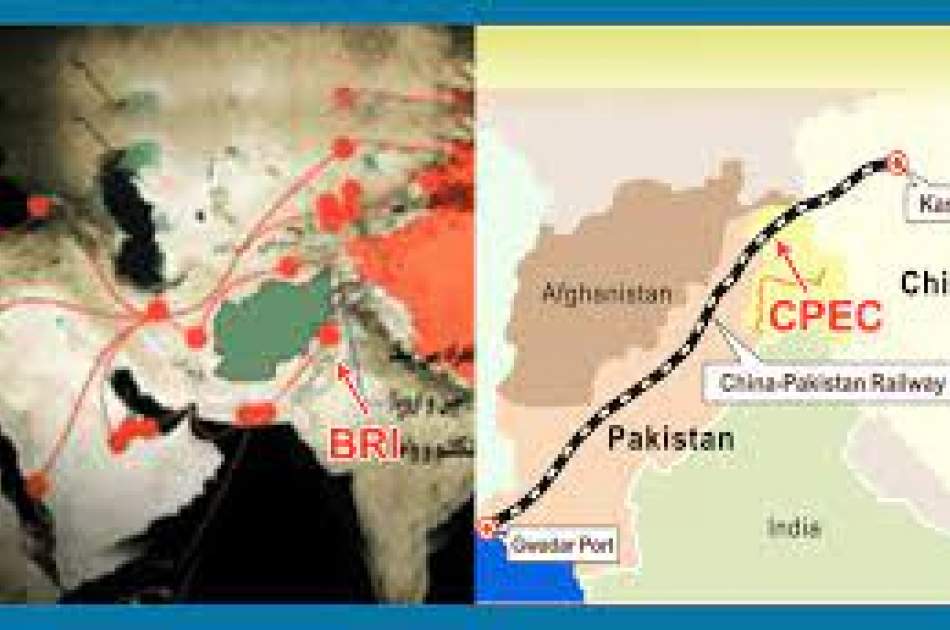Former president Hamid Karzai’s chief of staff Abdul Karim Khurram’s tweet on Pakistan’s intention regarding the imposition of a new Wakhan Corridor policy has triggered a heated debate.
Afghan Voice Agency(AVA)_Monitoring, On July 22, Khurram wrote on his Twitter handle that Pakistan had renewed its demand for the construction of a transit road via Wakhan for trade with Tajikistan.
Some sources urged the government to pay serious attention to Wakhan corridor because passive politics in this regard may inflict short- and long-term losses on Afghanistan.
Zabihullah Mujahid, spokesman for the interim government, reacting to such statements, said: “No discussion has taken place on the issue. There will be no compromise even on an inch of Afghanistan’s territory”
Some former government figures, who expressed concerns in this regard, believed the Taliban administration also followed their policy, he added. “Currently, no one can give Afghanistan the evil eye.”
Wakhan
Wakhan is a far-flung district of Badakhshan province — a mountainous region in the heart of Asia and northeastern Afghanistan. Wakhan is surrounded by the Hindukush mountain range to the west and by Karakorum mountains to the south.
Wakhan is a narrow strip touching China in the northeast, Pakistan in the south and Tajikistan in the north. The high-altitude region, mostly packed by snow, connects Central and South Asia.
The Amu River is located in the Wakhan region. Afghanistan has a 96 kilometres undisputed border with China in the northeast.
Pakistan out to impose long-term transit deal on Afghanistan
Dr. Yar Mohammad Taraki wrote in an article for Pajhwok a year ago that Afghanistan is situated between two major Belt and road Initiative (BRI) and CPEC, multi-billion dollar Chinese projects, routes — one in Pakistan and another in Central Asia. Badakhshan’s Wakhan and Eshakism districts are the nearest areas to connect these two routes.
The article says Pakistan’s responsibility is confined to handling transit issues. Because of its worsening economic condition, Pakistan is interested in using the Wakhan route for the export and import of goods and services.
Taraki wrote that Pakistan was not interested in connecting BRI routes through Wakhan to dispatch Chinese products to Gulf countries and its own goods and services to Russia and Central Asian states.
Connecting BRI routes in Wakhan may benefit Afghanistan, which is supposed to take the initiative to ensure the protection of its national interest.
Kabul University Teacher Ustad Massoud wrote on his Facebook page that by using Wakhan, Pakistan will emerge as a brifge between Central Asia and South Asia and Afghanistan would lose its importance as a link between the two regions.
“Afghanistan’s strategic location, which is an asset, would transit to Pakistan. Therefore, this scheme should be rejected out of hand.”
Afghanistan embassy in Tajikistan
Afghanistan’s mission in Dushanbe, the capital of Tajikistan, sent a letter to the Ministry of Foreign Affairs in July 2014.
The letter, whose copy is available with Pajhwok, reads: “Pakistan is trying to create instability in the region by using terrorism, drugs and mafia groups as a policy tool.”
The letter quoted the Pakistani ambassador in Dushanbe as saying that former prime minister Nawaz Sharif and the Tajikistan president had agreed that the Wakhan corridor should be built with the support of Afghanistan. This will help Tajikistan gain access to warm waters, they agreed.
The letter said according to research, a 10 kilometres tunnel in Wakhan, which will cost $24 million, will help connect Tajikistan with the Gwadar Port in Balochistan and Pakistan with Central Asia.
Some sources urged the government to pay serious attention to Wakhan corridor because passive politics in this regard may inflict short- and long-term losses on Afghanistan.
Zabihullah Mujahid, spokesman for the interim government, reacting to such statements, said: “No discussion has taken place on the issue. There will be no compromise even on an inch of Afghanistan’s territory”
Some former government figures, who expressed concerns in this regard, believed the Taliban administration also followed their policy, he added. “Currently, no one can give Afghanistan the evil eye.”
Wakhan
Wakhan is a far-flung district of Badakhshan province — a mountainous region in the heart of Asia and northeastern Afghanistan. Wakhan is surrounded by the Hindukush mountain range to the west and by Karakorum mountains to the south.
Wakhan is a narrow strip touching China in the northeast, Pakistan in the south and Tajikistan in the north. The high-altitude region, mostly packed by snow, connects Central and South Asia.
The Amu River is located in the Wakhan region. Afghanistan has a 96 kilometres undisputed border with China in the northeast.
Pakistan out to impose long-term transit deal on Afghanistan
Dr. Yar Mohammad Taraki wrote in an article for Pajhwok a year ago that Afghanistan is situated between two major Belt and road Initiative (BRI) and CPEC, multi-billion dollar Chinese projects, routes — one in Pakistan and another in Central Asia. Badakhshan’s Wakhan and Eshakism districts are the nearest areas to connect these two routes.
The article says Pakistan’s responsibility is confined to handling transit issues. Because of its worsening economic condition, Pakistan is interested in using the Wakhan route for the export and import of goods and services.
Taraki wrote that Pakistan was not interested in connecting BRI routes through Wakhan to dispatch Chinese products to Gulf countries and its own goods and services to Russia and Central Asian states.
Connecting BRI routes in Wakhan may benefit Afghanistan, which is supposed to take the initiative to ensure the protection of its national interest.
Kabul University Teacher Ustad Massoud wrote on his Facebook page that by using Wakhan, Pakistan will emerge as a brifge between Central Asia and South Asia and Afghanistan would lose its importance as a link between the two regions.
“Afghanistan’s strategic location, which is an asset, would transit to Pakistan. Therefore, this scheme should be rejected out of hand.”
Afghanistan embassy in Tajikistan
Afghanistan’s mission in Dushanbe, the capital of Tajikistan, sent a letter to the Ministry of Foreign Affairs in July 2014.
The letter, whose copy is available with Pajhwok, reads: “Pakistan is trying to create instability in the region by using terrorism, drugs and mafia groups as a policy tool.”
The letter quoted the Pakistani ambassador in Dushanbe as saying that former prime minister Nawaz Sharif and the Tajikistan president had agreed that the Wakhan corridor should be built with the support of Afghanistan. This will help Tajikistan gain access to warm waters, they agreed.
The letter said according to research, a 10 kilometres tunnel in Wakhan, which will cost $24 million, will help connect Tajikistan with the Gwadar Port in Balochistan and Pakistan with Central Asia.
avapress.com/vdca0inuo49nmu1.tgk4.html
Tags
Top hits







